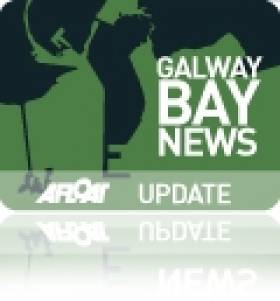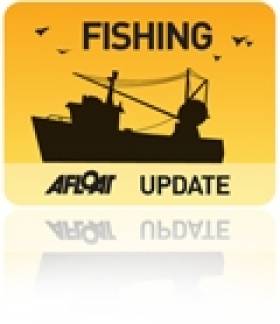Displaying items by tag: oyster dredging
Oyster Dredge Licences: Applications Now Open for 2023
Inland Fisheries Ireland (IFI) is now inviting applications from oyster fishers seeking a licence to operate an oyster dredge for the 2023 season.
The licence fee for 2023 is €94 and applications will only be accepted from applicants with boats on the sea fishing boat register of the Department of Agriculture, Food and the Marine.
Completed applications for next year’s season — addressed to the relevant IFI office and stating which fishery for which the application is being sought — must be received before noon on Monday 5 December.
For more information, the procedure and application form, see the IFI website HERE.
Applications Now Open for 2022 Oyster Dredge Licences
Inland Fisheries Ireland (IFI) is now inviting applications from oyster fishers seeking a licence to operate an oyster dredge for the 2022 season.
Applications will only be accepted from applicants with boats on the sea fishing boat register of the Department of Agriculture, Food and the Marine.
Completed applications for next year’s season — addressed to the relevant IFI offie and stating which fishery for which the application is being sought — must be received before noon on Monday 6 December.
For more information, the procedure and application form, see the IFI website HERE.
Applications Open For 2016 Oyster Dredge Licences
#Fishing - Fishermen wishing to apply for oyster dredge licences for the 2016 season must apply on the official form to the relevant river basin district office before noon on Friday 27 November.
According to Inland Fisheries Ireland (IFI), the application process is necessary due to the growing number of Special Areas of Conservation (SACs) and Natura 2000 sites in Ireland that also contain oyster fisheries.
As oyster fishing requires dredging, IFI says that "appropriate assessment of these fishing activities will have to be undertaken."
It added: "In the absence of appropriate assessments, against predetermined conservation objectives, it is necessary to ensure that no intensification of the fishing activity for oysters be permitted."
For further information, the official application procedure and the application form, visit the IFI website HERE.
Management Plan for Galway Bay Fisheries On Track
#GALWAY BAY - Galway Bay FM reports that the National Parks and Wildlife Service is to work with the Marine Institute towards completing a management plan for Galway Bay.
It comes two weeks after a group of oyster fishermen met Minister for Natural Resources Pat Rabbitte at Leinster House to voice their concerns over a cap on oyster dredging licences.
As previously reported on Afloat.ie, local fishermen in the inner Galway Bay-Clarinbridge area are concerned that their livelihoods are at risk after the European Union ruled that there is over-intensification of fishing at the oyster bed.
Only 13 dredging licences have been issued this year, and EU Directives prevent their further issue until a fisheries management plan is introduced.
Galway West Senator Fidelma Healy-Eames says steps are being made to get the management plan on track.
Galway Oystermen Meet Minister Over Licence Cap
#FISHING - Fishermen from Galway met Minister for Natural Resources Pat Rabbitte at Leinster House yesterday to voice their concerns over a cap on oyster dredging licences, Galway Bay FM reports.
Local fishermen in the inner Galway Bay-Clarinbridge area are concerned that their livelihoods are at risk after the European Union ruled that there is over-intensification of fishing at the oyster bed.
Only 13 dredging licences have been issued this year, and EU Directives prevent their further issue until a fisheries management plan is introduced.






























































